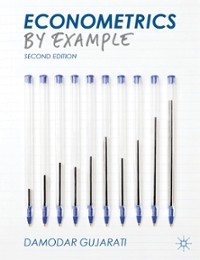Question
One to two-page (bullets are OK) list of the alternatives for each question, of who has standing, of what benefits and costs should be considered,
One to two-page (bullets are OK) list of the alternatives for each question, of who has standing, of what benefits and costs should be considered, of anything missing from any of the 10 steps that needs additional effort to find or figure out, of where missing information might be obtained (preliminary biblio) and your own schedule for completing each major analytical step in your CBA.
A landowner has a 243-acre farm in Williamsburg County, South Carolina. The owner inherited the land from a long line of ancestors that originally received it in 1670 as part of a royal land grant and intends to pass it to her heirs, so she has no interest in selling it. She receives $4,000 per year for assigning hunting rights to a local hunt club. The farm has 120 acres of crop land that she leases to a local farmer for $4,000 a year. She historically allowed the remaining 123 acres of timber land to replenish naturally and a lumber company paid her to harvest the timber after the stand matured earlier this year. Such a natural stand (no re-planting or spraying) typically takes about 28 years to mature, resulting in a harvest of roughly 110 tons per acre, with an estimated 50/50 split between pulpwood (worth a net of $12/ton) and saw-timber (worth a net of $22/ton).
Part A. Should the owner replant the timber land with predominantly pine trees (pine trees grow faster than hickory or oak trees) and spray the acreage to reduce other vegetation competition, increase tree growth rate and speed up the harvest date? The replanting would cost her approximately $120/ac, spraying about $125/ac. The normal regime for planting and spraying such an intensively managed stand includes a thinning at around age 14, producing approximately 45 tons/ac of pulpwood. The final harvest at target age 20 should produce approximately 108 tons/ac of 65% saw-timber and 35% pulpwood.
Part B. Should the owner convert the crop land to timber land instead of renting it? The crop land first would be planted at a cost of roughly $120/ac and two years later sprayed at a cost of $40/ac less than spraying replanted timber land because of less vegetation competing for nutrients. If she converted the crop land, she would lose the farm rental income but would gain another $1,000 per year in enhanced hunting rights from the hunt club. Once converted to timber, it is too expensive to reconvert it to crop land, so that decision, once made, would be irrevocable.
Part C. How would your answer to Part B change if you learned that the owner's discount rate is 15%?
Part D. If the owner incorporated the social cost of greenhouse gases (GHGs) in making her choice in Part B, by how much would this change your Part B calculations? Farming GHGs come about by the use of nitrogen-rich fertilizers, transportation fuels on and off the farm, insecticides, herbicides, etc. By comparison, timber spraying, planting and harvesting create negligible levels of GHGs. She is aware of the concerns that President Biden and most governments around the world have about the detriments of GHG growth and would like to do her part to reduce it, but only if it doesn't cost her too much. The crops grown on the farm are 67% hard endosperm (food grade corn used for sweet corn, popcorn, etc.) and 33% soybeans.
Step by Step Solution
There are 3 Steps involved in it
Step: 1

Get Instant Access to Expert-Tailored Solutions
See step-by-step solutions with expert insights and AI powered tools for academic success
Step: 2

Step: 3

Ace Your Homework with AI
Get the answers you need in no time with our AI-driven, step-by-step assistance
Get Started


